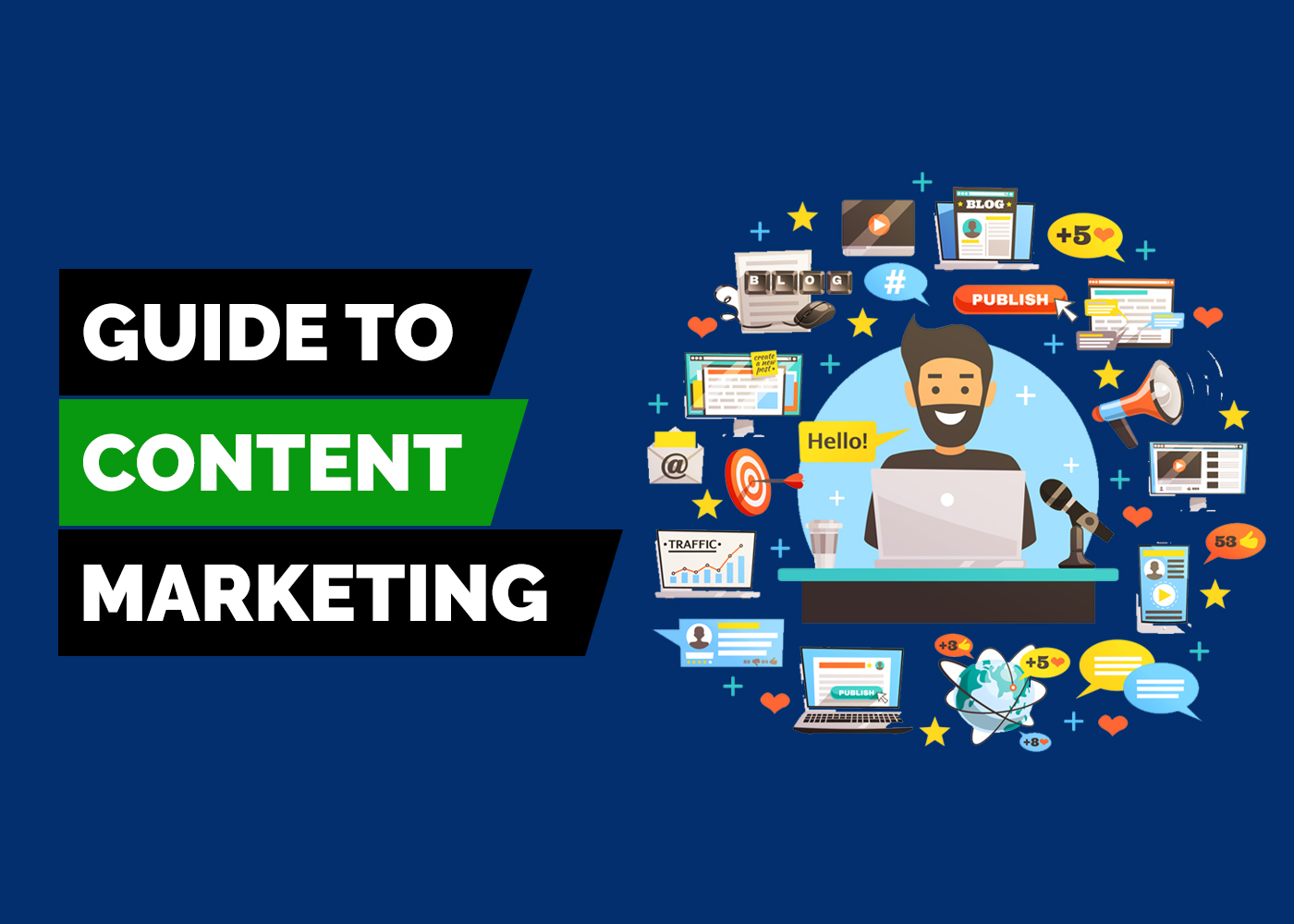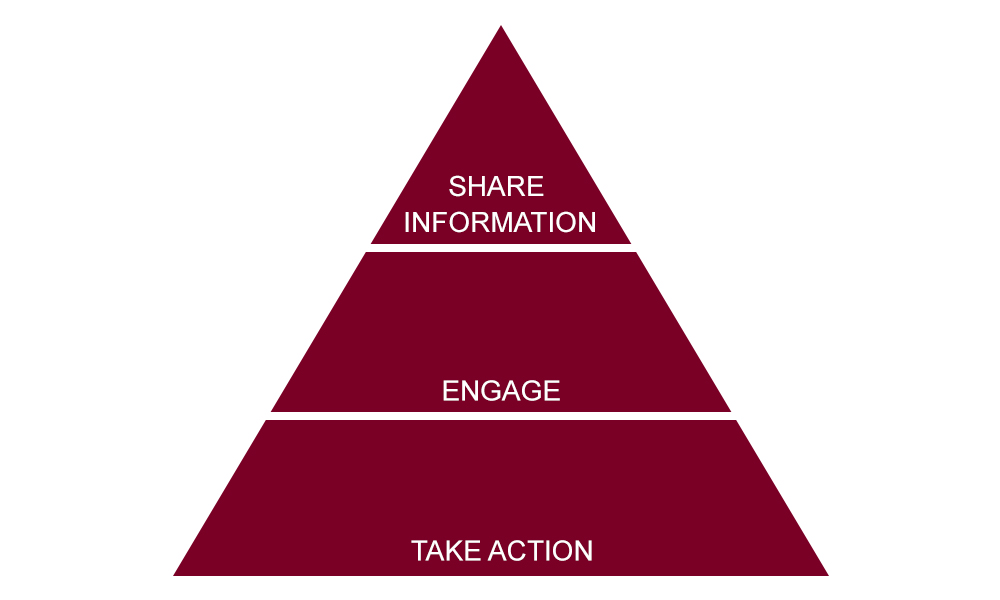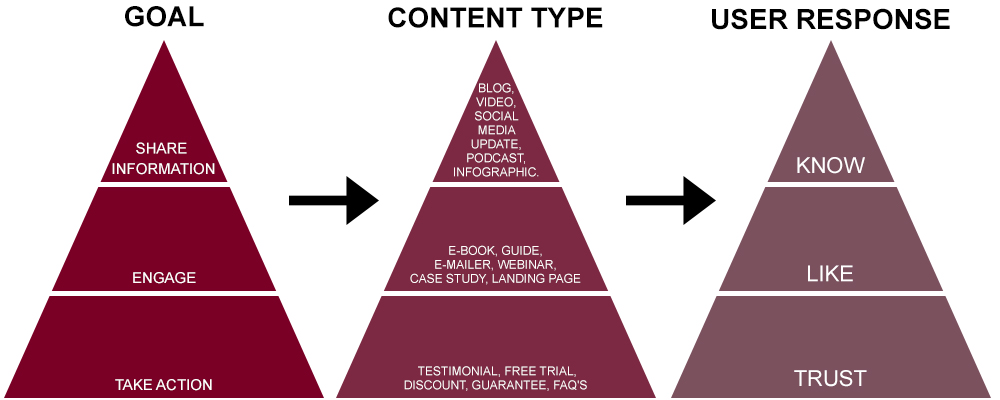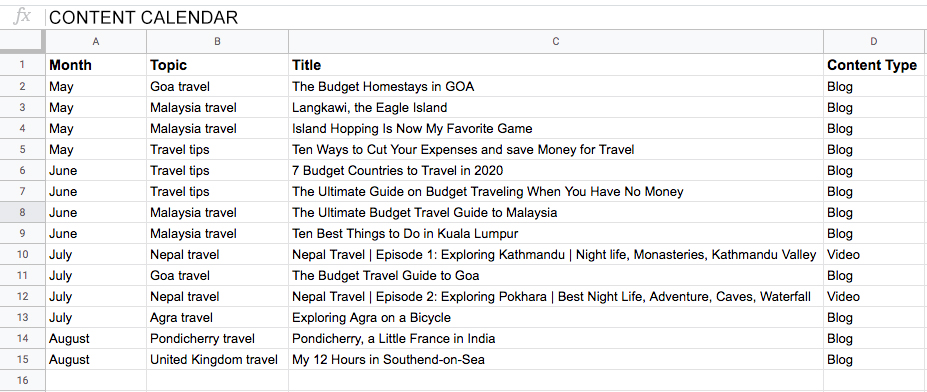A Complete Guide to Content Marketing

Content marketing has been around for years. You will be quite surprised to know that content marketing started in the year 1732 when Benjamin Franklin published the first yearly Poor Richard's Almanack. The Almanack was not for fun. He did it with a purpose to promote his new printing business. This my friend, is CONTENT MARKETING.
"Content marketing means building something and then getting it to your user's attention."

This guide covers the following topics:
- What is content marketing?
- Content quality matters.
- Why is content marketing important?
- How to create a content marketing strategy for your business?
- Retain users with content marketing.
- Some additional tips to get started with content marketing.
- My Final Word on Content Marketing
What is Content Marketing?
"Content marketing is a strategic marketing approach focused on creating and distributing valuable, relevant, and consistent content to attract and retain a clearly-defined audience - and, ultimately, to drive profitable customer action."
This definition is given by Content Marketing Institute and I couldn't agree more with each word. It clearly states, create content, distribute, attract & retain users and drive profit. Sounds simple! Yes, it is. But, do you know what is the key to every content marketing tactic?
It's content quality!
No content quality means no users.
Content Quality Matters
Content marketing is not content writing, it's way beyond that. But every content marketing requires a well-written content. You must have heard this a million times, but yes, for content marketing, the primary thing that matters is content quality.
Imagine you are looking for content that solves a problem for you. The problem is "How can I burn body fat?" Now imagine you view a blog post that gives a brief about your problem but doesn't give you a solution. That blog talks about things like work on your protein intake, your carbs intake but doesn't tell you about what amount of protein or carbs, or vitamin has to be taken in. It doesn't even tell you what food item can help you burn fat. Such content will lead you nowhere and you will be on the same question where you started.
Will you ever go back to the same website again? Will you ever suggest your friends or family to look for tips on that website? A big no! And that's a perfect example of low-quality content. It takes a user to a dead end.
Content that cannot solve a user's problem, is content wasted. And you can identify it from the bounce rate of your content. The higher the bounce rate, the lower is the quality of your content. Now you know how significant content quality is. Let's move forward to understand why content marketing is important for your business?
Why Is Content Marketing Important?
According to a report by Hubspot, Content marketing gets three times more leads than paid search advertising. When it comes to choosing a new type of marketing, marketers struggle with answering a lot of questions. "There are many other types of marketing so why does my business need content?" "Why should I invest my time and resources in content marketing?" Well! I can explain everything in points.
Take a look at this funnel.

As I introduced these three important steps in my previous blog: Marketing Basics for Beginners: Everything You Need to Know, let's dig deeper into it. Content marketing is important to your business on all these levels of the funnel.
Share Information (User will know you)
At the first level of the funnel i.e. sharing information, content marketing will help you in the following ways:
- You can educate your users by sharing information about your product or services.
- Create a sense of authority in your niche.
- You can reach a large number of audience.
For sharing information or spreading awareness you can create blogs, videos, infographics, podcasts, guides, E-books, or social media updates.
Engage (User will like you)
At the second level of the funnel (Engage), you can:
- Communicate with your audience to show them how your products or services can benefit them.
- Reply to their comments and build your brand credibility.
To engage your audience you can reply to their comments on your videos, blog posts or social media posts. You can keep them fascinated by sending them Emailers. Or you can send them links to the landing pages that talk about your product or services and how it can add value to their lives.
Take action (User will trust you)
The third level of the funnel will:
- Help you to boost conversions.
- Give you a sharp increase in revenue.
- Also, build the trust of your user allowing you to retain them.
To help your user to take action you can provide them with testimonials, discount offers, free trials, guarantees/warranties and demos.
A user is ready to consume content, you just have to reach him with the right solution. A user can start seeing your content at different levels of the funnel. So, you have to justify the purpose of each level and try to push the user to the next level by demonstrating how valuable he/she is to you. Every step is crucial and with the right content marketing, you can achieve the aimed user response.

As you go down through this funnel you will realise that content marketing also opens the huge gateway to "User Retention" as it builds a loyal and powerful relationship between you and your user. We will talk about user retention in this guide. But for now! Let's help you to build a content marketing strategy for your business.
How to Create a Content Marketing Strategy for Your Business?
First thing first, content marketing strategy is a significant part of content marketing. Without identifying the purpose of building content you cannot move further. Consequently, content marketing requires a content marketing strategy. Following are some points that will assist you to understand how you can build an effective content marketing strategy for your business?
Business Objective
Well! The common objective of every company is to grow their business. But it is always important to keep smart short term goals as well. Short term goals can be achieved in a short period and you can always analyse results before planning your next action. So, the first step of building the strategy is to understand what result you are looking for?
- Are you looking for business authority?
- Are you looking for a loyal relationship with your customers?
- Are you trying to keep your users engaged?
Once you know your purpose you can create content along with the line of your goals.
Who Is Your Audience? Where Do They Hang Out?
Before generating content you should know who is going to read it. Identify your user's problem and serve the solution with your content.
Let's take an example here. Suppose you are a mobile app development company. So, who is your audience? "The decision-maker of small or big businesses who are willing to build apps." And, who are these decision-makers? Are these decision-makers mobile app developers? NO! Just because you are a mobile app development company doesn't mean you will write content for mobile app developers. Every content has a purpose, you have to be specific here by answering the following questions:
- "What are the key services that my company offers?"
- "Who is the right audience to buy those services?"
- "What is the job profession of these customers?"
When you have answers to all these questions, your target audience is defined. Now identify which online platforms does your target audience use in their daily lives. Once you know whom to reach and where to reach, you are good to go.
Pick Your Content-Type
Every business has its content type. For some businesses videos work, for some blogs work, for some infographics works, for some slideshows work and for some Emailers work. You would want to dig deeper to figure out what type of content would your audience be interested in. You can also roll out surveys for gathering more information.
When it comes to picking the most winning type of content for your business, take a look at this blog by CoSchedule: 113 Content Types To Organize With Your Marketing Calendar. This blog gives a brief on how different sorts of content can be used for better conversions.
What Is Your Message to Your Audience?
All your content must have a valuable message. If you don't help your users with any useful information, they have no reason to come back to you. This is one of the most crucial parts of your content marketing strategy. If you can't add value to your user's life, you can't create a loyal relationship with them.
Plan Documentation
Once you have figured out what type of content works for your business you could document your calendar and start working on it. Here is a demo document of my Travel blog.

By putting all the above points into practice you can build an effective content marketing strategy for your business. Once you are ready with your plan you can start working on it. You may soon get results and that's the time when you can analyse how well the users are interacting with your content. For analysing, you can use Google Analytics. Now let's move forward to see how you can retain users with content marketing?
Retain Users with Content Marketing
High user retention is the most beneficial thing any business could achieve. In the funnel above where you share information, engage and take action, the next step is user retention. User retention is just a way for businesses to retain their customers over a long period. It is always more difficult to achieve new customers than to hold the existing ones.
Why will a user come back to you?
Well! At first build a loyal relationship with your customer. A user gets loyal to you when you convey them how valuable they are to you. When you progress through the funnel and reach the end where a user takes action, there are few things you have to work upon to retain users.
- Send in a thank you email and express them how important they are for you. This will make them feel nice.
- Answer every query and create a customer focussed help centre where one can get his or her issues resolved.
- Build a user guide and a guide of FAQs.
- Build and share tutorials with your customers.
- Send Emails, whenever you go live with a new feature.
Content marketing plays a very significant role in maintaining a high customer retention rate. And it's simply the best type of marketing to develop a long term relationship. Content marketing is not promotional, it's a great way to build trust.
Some Additional Tips to Get Started with Content Marketing
Content marketing is storytelling. And it is now adopted by every other business. People are just wandering over the internet, looking for information. If your marketing practices don't involve content marketing, then you are missing out something crucial for your business. After all these years of my experience in content marketing, I would like to share some useful tips:
- Content marketing involves a lot of research and planning. So, profound and valuable research can bring out valuable content.
- Content marketing is the most versatile tool and can be used anywhere on the journey to develop a sale.
- When you write content, write it as you own it.
- Content marketing is not just a blog, it's beyond that. Guest posting, PR, distribution, videos, these are the most used forms of content marketing.
My Final Word on Content Marketing
For me, content marketing is great. It is simply the best way to talk to your users directly. I can build and share content and my users can reply by commenting and that makes me a better marketer because I know what my users want.
So, don't miss out on content marketing. It can help you to boost conversions, build a loyal relationship with your audience and maintain a high retention rate. So, start building your exceptional content marketing strategy.
